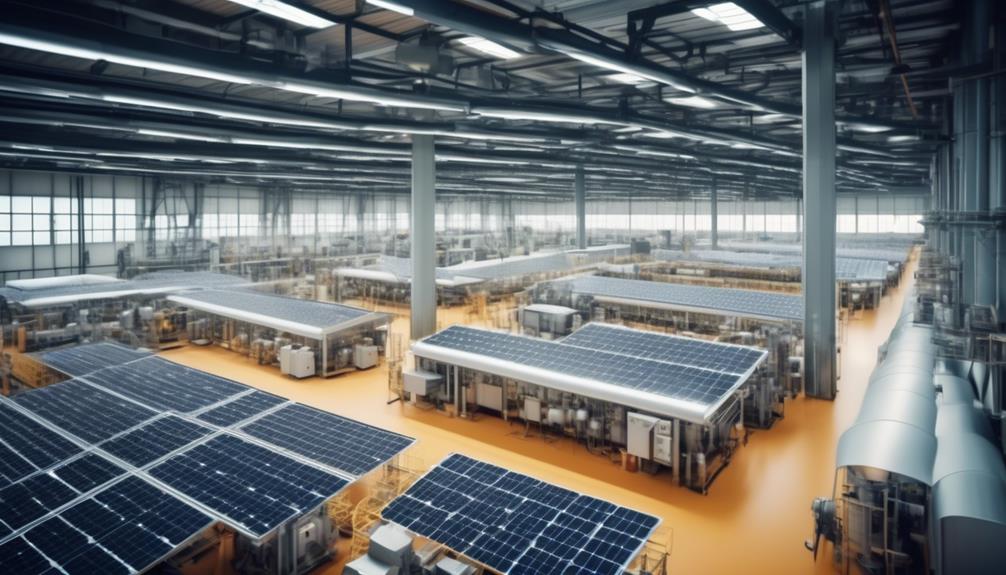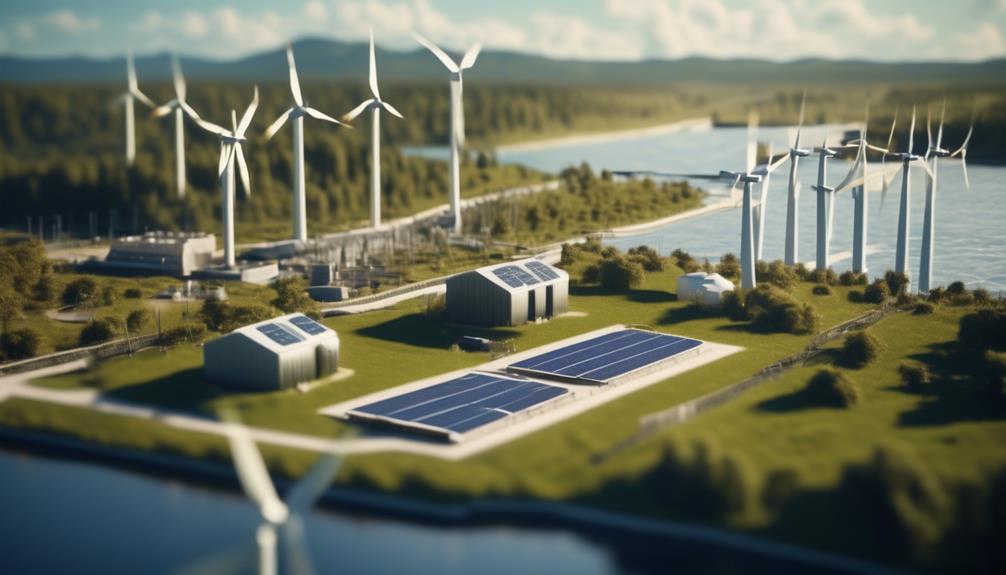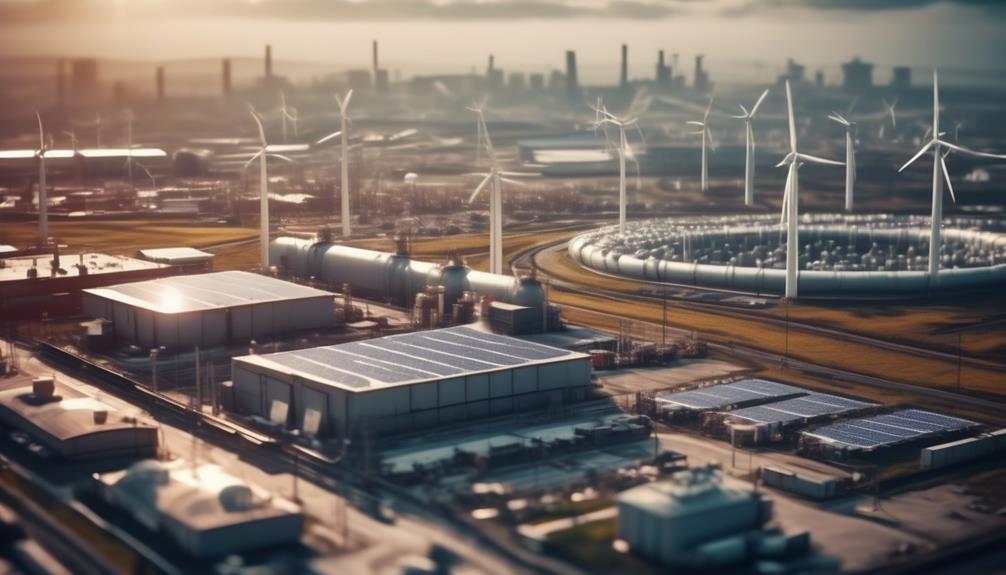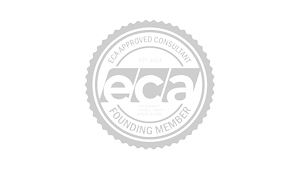In the complex landscape of today’s industries, navigating the waters of energy consumption is more than a mere operational concern—it’s a critical step toward financial and environmental stewardship. You’re likely on the lookout for impactful strategies that not only lower your energy bills but also align with sustainable practices, a quest that underscores the importance of industry-specific energy saving plans.
The challenges are manifold, from identifying the most significant areas of energy waste in your operations to implementing measures that won’t disrupt your business flow.
Drawing upon a wealth of experience in energy management across diverse sectors, this discussion aims to demystify the process of optimising energy usage within your unique industrial context. By focusing on tailored insights that resonate with your specific challenges and aspirations, we are set to explore four pivotal tips that promise to transform how you approach energy efficiency.
As we delve into these actionable strategies, you’ll find not just answers to pressing questions but also a roadmap to elevating your company’s financial and environmental profile. Let’s embark on this journey together, ensuring that your industry’s energy-saving endeavours are both successful and sustainable.
Energy Policy Development
Energy Policy Development within industries involves the creation of strategic plans and initiatives aimed at optimising energy utilisation and minimising wastage through the implementation of standardised frameworks such as ISO 50001 and regular energy audits. Industrial energy policy development focuses on promoting energy efficiency, reducing energy consumption, and enhancing energy management practices.
To achieve this, regular energy audits play a crucial role in identifying areas of high power consumption and power losses within industrial facilities. These audits, including walkthrough and detailed assessments, are essential for analysing major and minor loads, equipment losses, and calculating payback periods for potential energy-saving initiatives.
Data-driven decisions are vital for reducing industrial energy costs, and they should involve pre-engineering studies and site visits to gather comprehensive information about energy usage patterns. By adopting a structured approach to energy policy development, industries can effectively reduce energy use, leading to significant energy savings.
Implementing energy-saving tips and strategies within the industrial sector not only benefits the environment but also ensures long-term cost savings and sustainability. Therefore, promoting energy policy development and embracing energy-saving initiatives are essential for driving positive changes within industrial energy management.
Comprehensive Energy Audit
In a comprehensive energy audit, a thorough examination of an industrial facility’s energy usage is conducted to identify areas for optimisation and efficiency improvement. This process involves detailed data collection, bill comparison, and calculation of payback periods.
Walkthrough audits analyse major and minor loads, work types, and staff details, providing a comprehensive understanding of energy usage patterns. Regular energy audits are crucial for identifying power losses and areas of high power consumption, enabling the implementation of targeted strategies to reduce energy waste and enhance overall efficiency.
Tailored Renewable Energy Solutions
Tailored renewable energy solutions for industrial facilities are customised to address specific energy needs and infrastructure, offering targeted approaches to reduce reliance on traditional fossil fuels and enhance sustainability. These solutions involve the integration of renewable energy sources such as solar, wind, or biomass, aiming to reduce energy usage, lower air emissions, and decrease costs for industrial facilities. The table below highlights the key strategies and benefits of tailored renewable energy solutions:
| Strategies | Benefits |
|---|---|
| Integration of renewable energy sources | Reduces reliance on traditional fossil fuels |
| Energy audits and efficient lighting | Identifies areas for energy efficiency improvements |
| Power factor optimisation and motor efficiency | Lowers energy costs and reduces environmental impact |
| Data-driven decisions and pre-engineering studies | Ensures effective implementation of tailored solutions |
| Enhanced sustainability | Minimises environmental impact and aligns with corporate goals |
Implementing tailored renewable energy solutions not only reduces energy costs but also contributes to a greener footprint for industrial facilities, aligning with the growing emphasis on sustainable practices. By collaborating with a utility company or renewable energy experts, industrial facilities can make informed decisions to enhance their overall energy efficiency and environmental stewardship.
Industry-Specific Lighting Optimisation
Transitioning from tailored renewable energy solutions, industry-specific lighting optimisation plays a crucial role in achieving energy efficiency and cost savings for industrial facilities. To effectively optimise lighting in industrial settings, the following strategies can be implemented:
- Upgrade to Energy-Efficient LED Lighting: Evaluate the existing lighting infrastructure and consider transitioning to energy-efficient Light Emitting Diode (LED) lighting, which can significantly reduce electricity costs and energy consumption.
- Implement Lighting Control Systems: Integrate lighting control systems with sensors to minimise energy waste and optimise lighting usage based on occupancy and natural light levels.
- Explore Renewable Energy Sources: Consider incorporating renewable energy sources like solar power to offset lighting energy consumption, thereby reducing reliance on traditional power sources and lowering energy costs.
- Regular Maintenance and Service: Regularly maintain and service lighting equipment to ensure optimal performance and energy efficiency, thereby extending the lifespan of the lighting systems and reducing energy consumption.
Addressing industry-specific lighting optimisation through these energy efficiency measures not only helps in reducing energy costs but also aligns with the ENERGY STAR programme’s standards for commercial customers, enabling greater control over energy usage and costs.
Additionally, considering power factor correction measures can further enhance the overall efficiency of lighting systems, contributing to reduced electricity consumption and improved energy management.


















